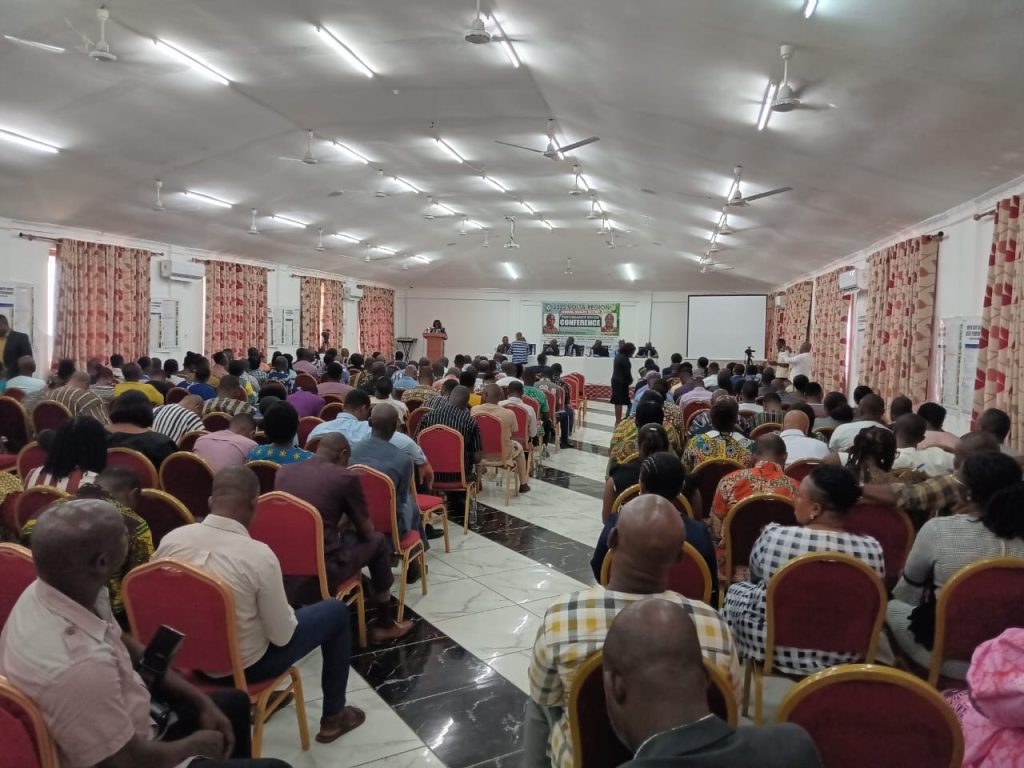|
Getting your Trinity Audio player ready...
|
Volta Region to get 600-bed tertiary hospital facility – Dr Letsa. Dr Archibald Yao Letsa, Volta Regional Minister, has revealed that a new 600-bed tertiary hospital facility would be established in the region to meet the growing health demands of Volta and two other regions. He said some grant arrangements with partners were ongoing for the construction of the facility.
Dr Letsa in an address at the 2023 Health Sector Annual Performance Review conference, said the region had been provided with a fair share of health infrastructure, lifesaving medical equipment, health information systems, and trained health professionals.
The two-day conference is themed, “Strengthening the Primary Healthcare System for Improved Access to Quality Health Service Delivery: The Role of Networks of Practice.”
He noted that the Ho Teaching Hospital had attracted a mixed of highly specialised staff who were now providing advanced specialist care.
Dr Letsa said an ultra-modern Public Health Emergency Operation Centre established with the support of the Centre for Disease Control had been in use for the past one and half years.
He noted that a regional infectious disease centre with a 40-bed capacity treatment facility and a separate 27-bed capacity Intensive Care Unit under the auspices of the Ho Teaching Hospital had also been operationalised.
Dr Letsa said the construction of a 20-bed capacity fully equipped Intensive Care Units at the Keta Government Hospital was serving several useful purposes.
“A similar structure in the Ketu South Municipal Hospital is yet to be operationalised.”
He urged the Regional Director to work with the necessary agencies to expedite action on its operationalisation.
Dr Letsa said the use of the new prefabricated fully equipped public health laboratories at the Aflao border and Hohoe to enhance disease surveillance along major borders must be optimised as soon as possible.
He noted that challenges with oxygen delivery to major facilities were gradually being reduced to the barest minimum with the construction of new oxygen plants in the Volta Region.
Dr Letsa said the government had also established the Lightwave Health Management Information System (LHIMS) and other technological platforms to manage electronic medical records without the use of printed booklets of patients’ folders in most instances.
He said almost all hospitals in the Volta Region had been enrolled, adding that like any new system, it would come with teething challenges but called on all to work to perfect the system.
Dr Letsa hinted that the government would this year commission the second phase of the University of Health and Allied Sciences (UHAS) adding that the $60 million project was about four times bigger than the existing structure at inception.
Dr Patrick Kumah Aboagye, Director-General of the Ghana Health Service said the country was six years away from actualising the Universal Health Coverage (UHC) with the service coverage index vacillating around 50 per cent, which he described as “not good enough, and questioned if by 2030 some gains can be made.”
He is optimistic that with hard working staff, deliberate efforts at leadership transformation through the GHS Institute, efforts to re-equip and re-tool and the support from all development partners in addition to the Ministry, “We can, and we shall.”
He urged participants made up of health workers across the board to forge good relationships and partnerships in the real spirit of NoPs approaches would bring on board government and society to serve better.
“Let us be deliberate in bringing the private health sector on board for holistic development of the sector.”
Dr Kumah Aboagye lamented the current rate of attrition of health professionals, which he described as unprecedented in Ghana’s history, but said the Ministry of Health working hard for replacement and through better conditions of service for professionals, who would agree to work in deprived settlements.
He said the Service was working hard to turn the corner to ameliorate the challenges of internet connectivity by improving access and quality service with digital technology.
Source: GNA


